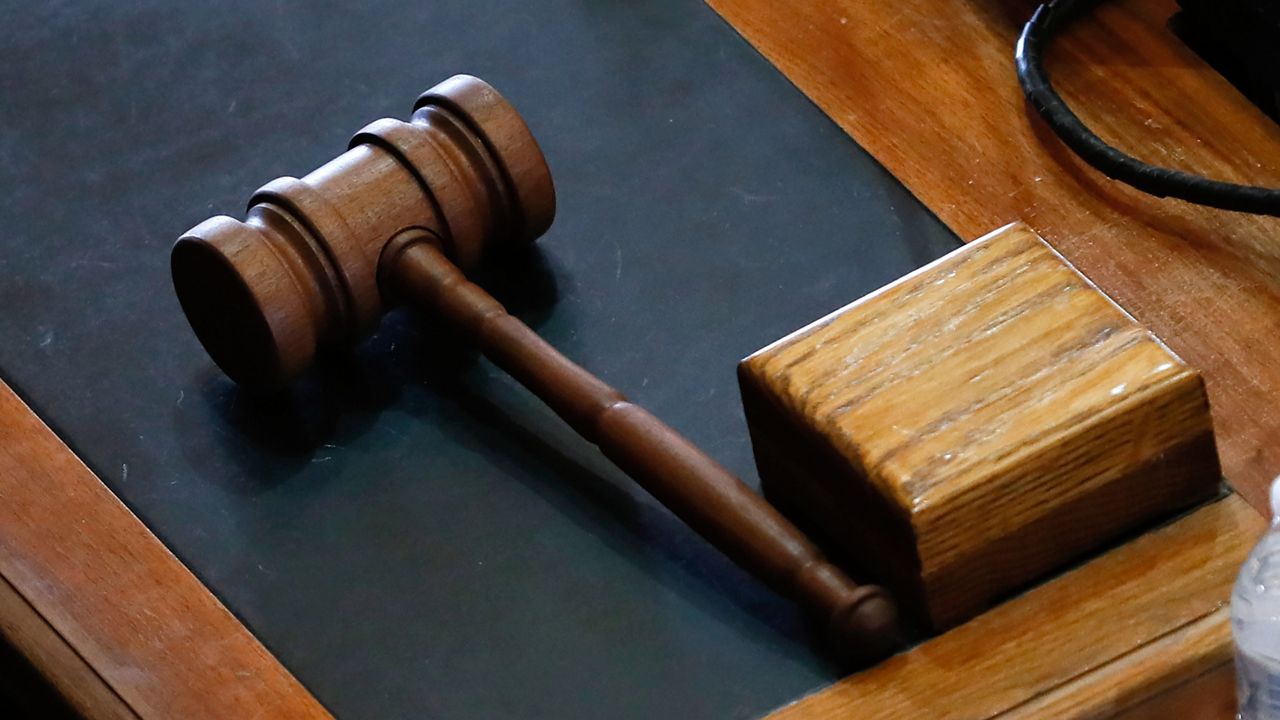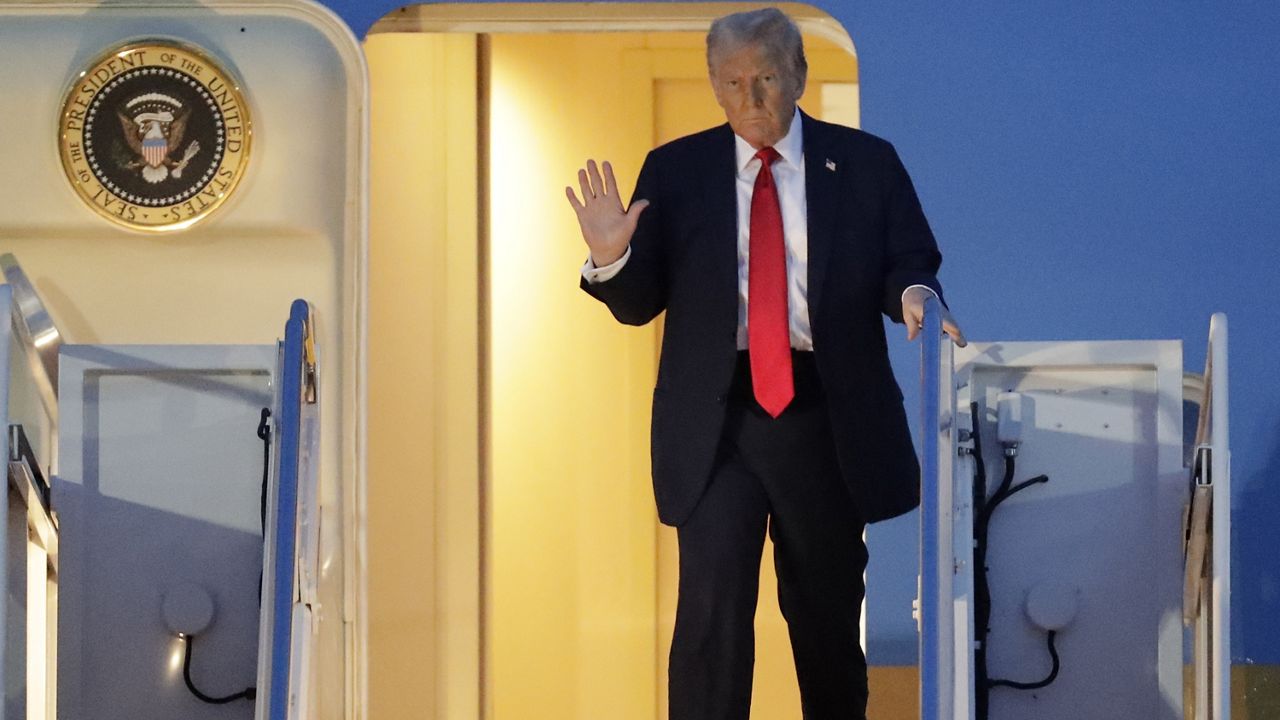After weeks away from the nation’s capital, Congress is set to return this week, fresh off an election that is shepherding in a massive shift in the balance of power in Washington.
Republicans in the Senate are readying to chair committees and control the upper chamber’s agenda after securing enough seats in this week’s election for a majority, the size of which has yet to be determined as ballots are still being counted in two battleground states with ultra-tight races.
The House has yet to be called for either party but the GOP has a solid chance at keeping their edge in the lower chamber, bringing the potential for complete Republican control in Washington after former President Donald Trump also secured the presidency in this week's election. (House Democratic leader Hakeem Jeffries told Spectrum News in an interview on Thursday that he believes his party still has a “clear pathway taking back the majority” and the Associated Press has not declared a winner yet.)
Before all that, however, the current Congress – in which Democrats still hold the Senate and the GOP has the slimmest of margins in the lower chamber – must finish out the year and decide how much it gets done and how much it punts into a second Trump term. Here are some of the things they will have to decide.
Republicans may look to get some items off their to-do list in the lame duck session to have a fresh start with a new Congress and president next year. Other items, on the other hand, they may wish to kick down the line for when they have a Republican in the White House.
But one area lawmakers will have to deal with in some capacity no matter what: government funding.
Congress passed a short-term government funding patch called a continuing resolution in late September to avoid a shutdown with little fuss before taking off for their pre-election break. The stopgap bill pushed the new deadline to set a budget for the government for the fiscal year to Dec. 20, right before the holidays, instead of a later date in the new year, as some GOP leaders had hoped.
Congressional leaders will have to act again in between its return next week and Dec. 20 to avert a potential shutdown, either by working out a budget for the full fiscal year that Democratic President Joe Biden would have to sign off on or by passing another short-term funding patch that punts to a new Congress and administration next year.
Another item lawmakers are expected to have to take on is allocating additional funds for disaster aid after Hurricanes Helene and Milton ripped through the Southeast in September and October, killing well over 200 people and causing billions of dollars in damages.
In the wake of the storms, Biden urged Congress to “immediately” allocate more funds to aid survivors and called on lawmakers to pause their more than six-week pre-election break if necessary to do so (which did not happen).
Biden specifically warned that the Small Business Administration’s disaster loan program, which he said is “often the largest source of Federal disaster recovery funds” was running dry. It officially ran out of funds on Oct. 15.
Last month, a group of Republican senators, led by Sen. Thom Tillis of North Carolina, a state heavily impacted by Helene, announced plans to introduce legislation to designate a fresh $550 million to the SBA disaster loan program when Congress returns.
Separately, while federal officials said the Federal Emergency Management Agency, which leads the federal response to such storms, currently has the resources it needs in the short-term, Biden and other officials noted it will need more money in the long term. Congress will have to decide whether to take that on before the new year or after.
Some lawmakers, such as Florida’s Rick Scott and Marco Rubio, already proposed legislation to add additional money to FEMA’s disaster fund during the break.
Meanwhile, lawmakers must also decide how to approach the National Defense Authorization Act, the annual, must-pass bill that governs policy at the Pentagon for the year. Last year’s legislation was greenlit by both chambers and the White House in mid-December before lawmakers left for their holiday recess.
Another massive piece of legislation that has been hanging over Congress’ head for more than a year is the Farm Bill, an omnibus agriculture policy bill enacted every five years that includes programs like the Supplemental Nutrition Assistance Program, formerly known as food stamps.
The last five-year bill passed by Congress – negotiated when Trump was in the White House in his first term – expired in 2023. With no new agreement in sight, lawmakers passed a one-year extension that lasted until Sept. 2024 The Congressional Research Service noted continuing resolutions allow some aspects of the bill to continue after expiration but others, such as the farm commodity and dairy support programs, will expire after the 2024 crop year and consequences will begin to be felt on Jan. 1, 2025.
In two separate letters, both sent to House leadership, more than half of House Republicans and members of the New Democrat Coalition asked for Congress to take action on the Farm Bill before the end of the year.
Senate Majority Leader Chuck Schumer of New York has said confirming judges chosen by Biden will be a major priority of Senate Democrats in the lame duck session as they look to reach or surpass the number of judicial picks Trump had confirmed during his first term and leave their mark on the federal judiciary.
Meanwhile, both chambers are expected to use the lame duck period to work through who will lead their parties in each chamber next year.
Most notably, the Senate GOP is expected to be caught in a battle to decide who will replace the chamber’s longest serving party leader, Republican leader Mitch McConnell, who said he is stepping down from the Senate GOP’s top role at the end of the year. Whomever the party picks will be the upper chamber’s leader come January.
Should Republicans keep control of the House, Speaker Mike Johnson has already asked his colleagues to back him for another term at the head of the chamber.










